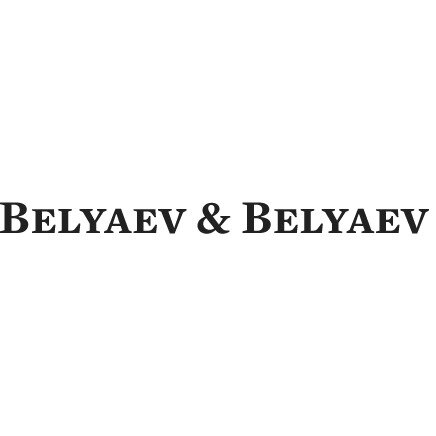Best Creditor Lawyers in Riga
Share your needs with us, get contacted by law firms.
Free. Takes 2 min.
List of the best lawyers in Riga, Latvia
About Creditor Law in Riga, Latvia
Creditor law in Riga, Latvia, involves the legal processes and regulations that govern the relationships between creditors and debtors within the jurisdiction. This field of law addresses the rights and obligations of creditors seeking to collect debts owed to them by individuals or businesses. It includes a range of practices such as debt collection, insolvency proceedings, secured transactions, and enforcement of judgments. The legal landscape in Latvia provides a framework to ensure that creditors can manage and mitigate the risks associated with lending and recover amounts due while balancing the rights of debtors.
Why You May Need a Lawyer
There are several situations where you might require legal assistance in creditor matters. For example:
- If you are a business or individual seeking to recover a debt from a debtor who has defaulted on a repayment obligation.
- You need assistance in negotiating and drafting lending agreements or need advice on securing loans with appropriate collateral.
- You are involved in insolvency proceedings, either as a creditor or as a debtor.
- You require representation in court or arbitration proceedings related to debt collection.
- You seek to enforce judgments or arbitral awards against assets located in Latvia.
Engaging a legal professional can help navigate these processes efficiently and ensure compliance with relevant laws and regulations.
Local Laws Overview
The Latvian legal system provides several mechanisms and tools for creditors aiming to recover debts:
- Insolvency Law: This law regulates the procedures for insolvency and legal protection proceedings, providing a framework for both the recovery of debts by creditors and the financial recovery of debtors.
- Civil Procedure Law: Governs court proceedings and is essential for understanding the litigation process in civil cases, including debt recovery actions.
- Secured Transactions: Latvia has specific rules regarding secured transactions, which dictate how security interests can be created and enforced on a debtor's assets.
- Enforcement Process: Creditors may require court orders to seize assets or garnish wages, and this process is governed by Latvian laws ensuring proper enforcement while protecting debtor rights.
Frequently Asked Questions
What is considered a default under Latvian law?
A default typically occurs when a debtor fails to meet their repayment obligations as stipulated in the loan agreement. This could be due to non-payment, partial payment, or delays.
How can I secure a debt in Latvia?
In Latvia, a debt can be secured through various methods, such as mortgages, pledges, and personal guarantees. Legal advice is recommended to ensure compliance and effective registration of interests.
Can international creditors pursue debt recovery in Riga?
Yes, international creditors can pursue debt recovery in Riga, but it often requires navigating both local laws and any applicable international treaties or agreements.
What is the role of the bailiff in debt recovery?
Bailiffs in Latvia play a crucial role in enforcing court judgments related to debt recovery, including asset seizure and sales to satisfy outstanding debts.
How long does debt recovery take in Latvia?
The duration of debt recovery can vary based on the complexity of the case, the debtor's willingness to settle, and the legal processes involved.
What can I do if a debtor declares insolvency?
Creditors can file claims in insolvency proceedings through the appointed insolvency administrator and participate in the process as per the insolvency regulations in Latvia.
Are there any legal limits on interest rates or penalties?
Yes, Latvian law may impose certain limits on interest rates and penalties to prevent usurious practices. It's essential to consult legal advice when drafting loan agreements.
Is mediation an option for debt-related disputes in Latvia?
Mediation can be a valuable tool for resolving disputes without litigation. It is often encouraged as a means to reach an amicable settlement between creditors and debtors.
What documents are needed to initiate debt recovery?
Generally, you'll need the original debt agreement, proof of debt, correspondence with the debtor, and any relevant payment records. Legal assistance can help ensure all necessary documentation is complete.
Can a debt be sold to a third party in Latvia?
Yes, creditors can assign or sell the debt to a third-party collection agency, a practice governed by specific legal provisions in Latvia.
Additional Resources
Several resources and institutions can provide assistance or information regarding creditor matters in Riga, Latvia:
- Latvian Courts: Managing the resolution of disputes and enforcement of debts.
- Insolvency Control Service: Supervises insolvency proceedings and can provide guidance.
- Consumer Rights Protection Centre: Assists consumers dealing with creditor issues, ensuring their rights are protected.
- Latvian Chamber of Commerce and Industry: Offers advice and information on financial regulations and creditor rights.
Next Steps
If you find yourself in need of legal assistance regarding creditor issues in Riga, the following steps can help guide your process:
- Consult with a Lawyer: Engage with a legal professional specializing in creditor law for personalized advice and representation.
- Gather Documentation: Assemble all necessary documents related to your case, including contracts, communications, and any evidence of payments or defaults.
- Explore Mediation: Consider attempting mediation with the debtor as an alternative to litigation. This can be a faster, more amicable solution.
- Consider Legal Action: As a last resort, prepare to initiate formal legal proceedings through the appropriate legal channels in Latvia.
It's crucial to act promptly and stay informed about your rights and obligations under Latvian law when involved in creditor matters.
Lawzana helps you find the best lawyers and law firms in Riga through a curated and pre-screened list of qualified legal professionals. Our platform offers rankings and detailed profiles of attorneys and law firms, allowing you to compare based on practice areas, including Creditor, experience, and client feedback.
Each profile includes a description of the firm's areas of practice, client reviews, team members and partners, year of establishment, spoken languages, office locations, contact information, social media presence, and any published articles or resources. Most firms on our platform speak English and are experienced in both local and international legal matters.
Get a quote from top-rated law firms in Riga, Latvia — quickly, securely, and without unnecessary hassle.
Disclaimer:
The information provided on this page is for general informational purposes only and does not constitute legal advice. While we strive to ensure the accuracy and relevance of the content, legal information may change over time, and interpretations of the law can vary. You should always consult with a qualified legal professional for advice specific to your situation.
We disclaim all liability for actions taken or not taken based on the content of this page. If you believe any information is incorrect or outdated, please contact us, and we will review and update it where appropriate.












